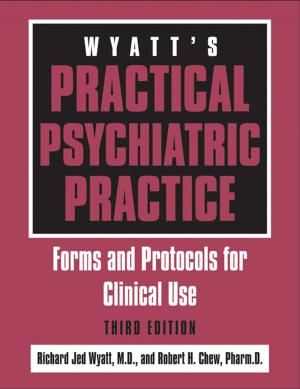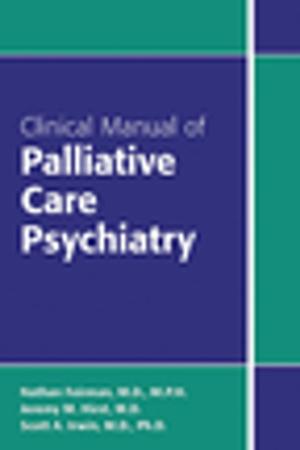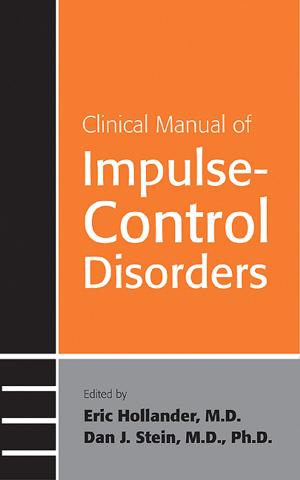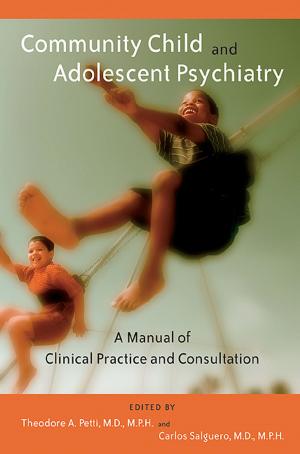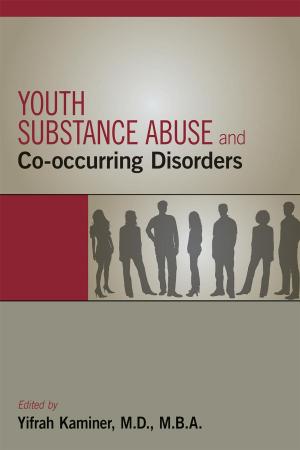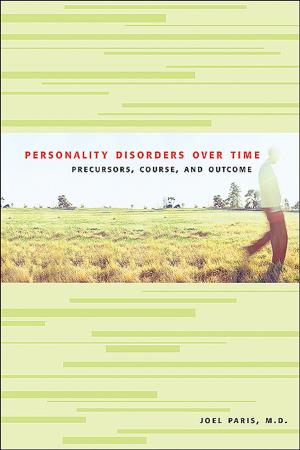Principles and Practice of Child and Adolescent Forensic Mental Health
Nonfiction, Health & Well Being, Psychology, Psychiatry, Medical, Specialties| Author: | ISBN: | 9781585629015 | |
| Publisher: | American Psychiatric Publishing | Publication: | October 20, 2009 |
| Imprint: | American Psychiatric Association Publishing | Language: | English |
| Author: | |
| ISBN: | 9781585629015 |
| Publisher: | American Psychiatric Publishing |
| Publication: | October 20, 2009 |
| Imprint: | American Psychiatric Association Publishing |
| Language: | English |
When care of younger patients raises thorny legal questions, you need answers you can trust: that's why this book belongs on every clinician's reference shelf. Principles and Practice of Child and Adolescent Forensic Mental Health is a timely and authoritative source that covers issues ranging from child custody to litigation concerns as it walks clinicians through the often-confusing field of depositions and courtroom testimony.
The book expands on the 2002 volume Principles and Practice of Child and Adolescent Forensic Psychiatry winner of the 2003 Manfred S. Guttmacher Award, to meet pressing twenty-first-century concerns, from telepsychiatry to the Internet, while continuing to cover basic issues, such as forensic evaluation, psychological screening, and the interviewing of children for suspected sexual abuse, that are important to both new and experienced practitioners. Many of its chapters have been entirely rewritten by new authors to provide fresh insight into such topics as child custody; juvenile law; abuse, neglect, and permanent wardship cases; transcultural, transracial, and gay/lesbian parenting and adoption; and the reliability and suggestibility of children's statements. It also includes significant material not found in the previous volume: Two chapters on special education offer an introduction to screening instruments and help practitioners determine a child's potential need for special education programs and services. A chapter on cultural competence helps readers improve the accuracy and responsiveness of forensic evaluations and minimize the chance of an unjust outcome resulting from misguided expert opinion. The section on youth violence features three new chapters -- Taxonomy and Neurobiology of Aggression, Prevention of School Violence, and Juvenile Stalkers -- plus a newly written chapter on assessment of violence risk, offering guidance on how to confront problems such as bullying and initiate effective family interventions. A chapter on psychiatric malpractice and professional liability addresses these legal concerns with an eye toward cases involving minors. A chapter on psychological autopsy covers evaluation of the circumstances surrounding pediatric suicides, describing various types of equivocal deaths and discussing legal issues such as admissibility of the autopsy in court. A newly written chapter on the Internet expands the previous book's focus on child pornography to help practitioners deal with issues ranging from online threats to emotional and legal consequences of interactions in cyberspace.
This is a valuable reference not only for practitioners in psychiatry and the mental health field but also for attorneys and judges. It opens up a field that may be too often avoided and helps professionals make their way through legal thickets with confidence.
When care of younger patients raises thorny legal questions, you need answers you can trust: that's why this book belongs on every clinician's reference shelf. Principles and Practice of Child and Adolescent Forensic Mental Health is a timely and authoritative source that covers issues ranging from child custody to litigation concerns as it walks clinicians through the often-confusing field of depositions and courtroom testimony.
The book expands on the 2002 volume Principles and Practice of Child and Adolescent Forensic Psychiatry winner of the 2003 Manfred S. Guttmacher Award, to meet pressing twenty-first-century concerns, from telepsychiatry to the Internet, while continuing to cover basic issues, such as forensic evaluation, psychological screening, and the interviewing of children for suspected sexual abuse, that are important to both new and experienced practitioners. Many of its chapters have been entirely rewritten by new authors to provide fresh insight into such topics as child custody; juvenile law; abuse, neglect, and permanent wardship cases; transcultural, transracial, and gay/lesbian parenting and adoption; and the reliability and suggestibility of children's statements. It also includes significant material not found in the previous volume: Two chapters on special education offer an introduction to screening instruments and help practitioners determine a child's potential need for special education programs and services. A chapter on cultural competence helps readers improve the accuracy and responsiveness of forensic evaluations and minimize the chance of an unjust outcome resulting from misguided expert opinion. The section on youth violence features three new chapters -- Taxonomy and Neurobiology of Aggression, Prevention of School Violence, and Juvenile Stalkers -- plus a newly written chapter on assessment of violence risk, offering guidance on how to confront problems such as bullying and initiate effective family interventions. A chapter on psychiatric malpractice and professional liability addresses these legal concerns with an eye toward cases involving minors. A chapter on psychological autopsy covers evaluation of the circumstances surrounding pediatric suicides, describing various types of equivocal deaths and discussing legal issues such as admissibility of the autopsy in court. A newly written chapter on the Internet expands the previous book's focus on child pornography to help practitioners deal with issues ranging from online threats to emotional and legal consequences of interactions in cyberspace.
This is a valuable reference not only for practitioners in psychiatry and the mental health field but also for attorneys and judges. It opens up a field that may be too often avoided and helps professionals make their way through legal thickets with confidence.

